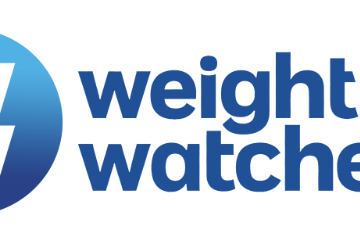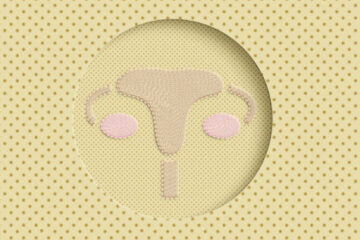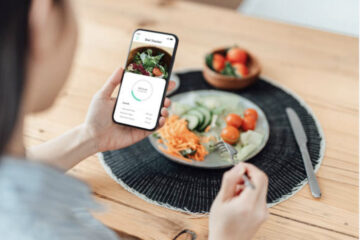Nutrition myths, busted!
At this time of the year, it is especially common to see these myths or magical claims of health floating around the internet. Read more to find out why these are not to be believed so that you can be well equipped to know what is myth or reality!
Myth 1:
I need to go on a juicing or detox diet to lose weight fast (typically popular in the new year, after the festive season!)
When you juice fruits and vegetables, what remains is the vitamins, minerals and the juice. This juice lacks the fibre that is found in the whole fruit or vegetables.
Juicing to lose weight is unsustainable and unhealthy. You may see quick results at first, but this is likely due to the loss in water weight and muscle loss, rather than actual fat loss. The minute you start eating foods again, you will see that weight loss stop and you will likely regain the weight that you lost.
Juice diets are also not satisfying or filling, so often people will still be going hungry. Not only that, but essential nutrients like fibre and protein are largely lacking when juicing (both of these are key for satisfaction and fullness) and you may risk developing nutritional deficiencies.
There is no scientific evidence that juicing is needed to ‘detox’ the body. In fact, our kidneys and liver are constantly detoxing for us each day! You can support it by eating an overall well-balanced diet, with plenty of whole fruits and vegetables to get in a good intake of fibre.
Unfortunately, there is no quick fix for fat loss that is sustainable and long term. It takes time and eating a varied and balanced diet is just one of the factors to consider!
Myth 2:
You need to cut out all sugar to be healthy
Although having a diet high in added sugar isn’t the best for health outcomes, there is no reason why you need to cut it out completely.
In fact, a lot of foods we eat each day contain naturally occurring sugars. These include all carbohydrates such as bread, rice and pasta, as well as all fruits and vegetables and dairy products. These sugars are not something to concern yourself about – especially as these foods also provide a host of vitamins, minerals and other important nutrients for the body.
Products with added sugars can include cakes, biscuits, doughnuts, ice creams, cereals, flavoured yoghurts and sweetened drinks like juices and fizzy drinks. These are called ‘free sugars’. Trying to reduce our intake of free sugars to recommended guidelines to less than 5% of your daily energy (calorie) intake is advised. This is no more than 30g of free sugars a day for the average adult. So overall, foods and drinks that contain free sugars can still be included in an overall varied and balanced diet, in smaller quantities.
Sweeteners such as honey, agave or maple syrup are also free sugars, as they are broken down the same way as regular simple sugar by the body. So replacing regular sugar with these sweeteners will not make a difference for our health outcomes!
Myth 3:
A low carb diet is the best to help with weight loss
Although there is some evidence showing that lower carbohydrate intakes can help with weight loss, this isn’t the only or best way to lose weight. The best method is one that you can personally stick to! We are all so different and unique, so there is certainly no one size fits all approach. Reducing your carbohydrate intake is just one way of reducing the overall amount of calories (energy) you consume in a day. And if this creates a deficit, then weight loss can occur.
However, it is important to make sure that whatever way you choose to lose weight, it is a method that you can happily stick to and feels sustainable for the rest of your life, rather than short term. Because if you only do this short term, you are more likely to end up re-gaining the weight, and more.
Being mindful of your carbohydrate intake and including them in an overall balanced and varied diet is important, especially as carbohydrates are our main source of energy! It is a good idea to review overall portion sizes, eating slowly until you are comfortably full and satisfied, which can help you to eat to your bodies hunger instead.
Myth 4:
Fresh fruit & vegetables are better than frozen or canned
Frozen fruits and vegetables are just as nutritious as fresh – if not, even more! Frozen fruits and vegetables are picked and then frozen very quickly at their peak of freshness, whereas fresh produce starts to lose some nutrition as soon as it is picked. Similar with tinned fruit or vegetables, the tinning process seals in the nutrients, and this allows the product to have a much longer shelf life than fresh produce.
Frozen or tinned food is also more economical, especially if the fresh food isn’t in season or produced in the UK. Including a mix of fresh, frozen and tinned fruit and vegetables in our diet can increase the variety of meals we eat, which can only benefit our health!
Using frozen vegetables are an easy and convenient way to add in more veggies to meals, and also helps reduce the prep time as they are often already cut too!
Myth 5:
Doing lots of stomach exercises will help me burn belly fat
There is no single exercise that will help burn belly fat. The idea of ‘spot reduction’, which is targeting one area of the body by doing lots of specific training will unfortunately not cause fat loss from those particular areas.
So although doing abdominal (stomach) exercises such as crunches, planks and twists will help to strengthen the abdominal muscles, if we have a high amount of fat around this section, the muscles will not be visible. Muscle cells anywhere in the body cannot use the fat contained in fat cells – the fat first needs to be broken down before it can be used as energy, and this fat can come from anywhere in the body, not just the part of the body being exercised.
Frequent aerobic and endurance exercise with a combination of strength based or resistance exercise is an effective way to help reduce body fat, from anywhere in the body. This should be done alongside a healthy and balanced diet too!
Myth 6:
Snacking is a bad thing
Having something to eat between your main meals isn’t necessarily a bad thing! It’s important to try and look at the reasons why you may reach for a snack.
Are your main meals nutritionally adequate, and are they filling and satisfying? If they are not filling or you are not really enjoying them, then it’s normal to be looking for a snack soon after! So, trying to have filling and tasty meals that you feel good eating is important, to keep you going between meals.
Another reason why you may want to snack is if you have large gaps between meals. For example, if you have breakfast at 7am, lunch at 1pm and dinner is not until 7pm or later, that’s at least 6 hours between lunch and dinner, which is quite a long time! So having a balanced and filling snack in this case is a great idea to help stabalise your hunger and prevent you from feeling overly starving or ‘hangry’ when it comes to dinner time. Otherwise, you may end up making poor food choices, due to your high hunger levels.
Myth 7:
Breakfast is the most important meal of the day
There are many mixed messages around the importance of having breakfast each day. It can be an ideal time to provide your body with some energy at the start of the day. And if you find that you skip breakfast but end up snacking before lunch, then trying to make time for a short but nutritious breakfast can help set you up for the morning and avoid unnecessary snacking.
However, others may not physically feel hungry at the start of the day and don’t fancy breakfast. That is also okay! Waiting perhaps until mid-morning when you start to feel hungry is a good idea and having something prepared with you for this time is easy and can be classed as a breakfast too.
The quality of your breakfast is important too – so if you get hungry in the morning and fancy something to eat, try to include a good source of protein & healthy fats, (such as eggs, milk or yoghurt) with a wholegrain or fruit for some fibre. This will make a filling and satisfying breakfast.
But if you are not hungry in the morning, then concentrating on having balanced and regular meals throughout the day is more important when you are hungry, than putting too much pressure on yourself to have breakfast each day.
By Reema Patel, Registered Dietitian







